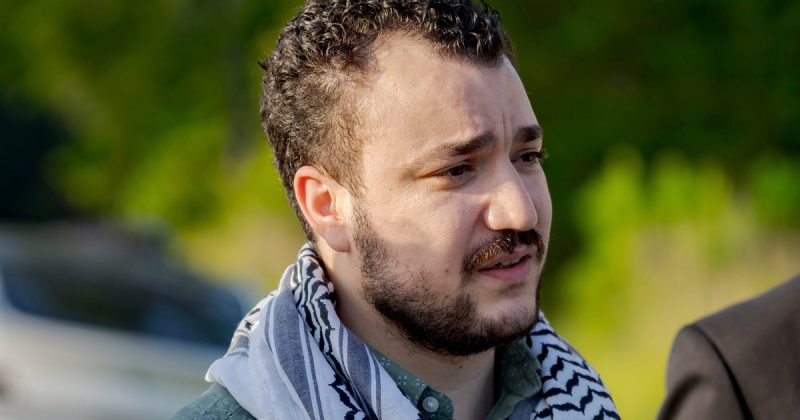
Mahmoud Khalil, a Columbia University graduate and Palestinian rights activist, has been released from ICE custody after more than 100 days in detention. A federal judge ordered his release, citing the unusual nature of his detainment and concerns that it was an attempt to punish him for his political speech. Khalil, a green card holder, was arrested in March in the lobby of his apartment building and transferred to a detention center in Jena, Louisiana, far from his pregnant wife and legal team. The government’s attempt to deport him stemmed from his involvement in campus protests against Israel and allegations of ties to Hamas, charges Khalil denies.
His release was met with celebration by supporters, including Congresswoman Alexandria Ocasio-Cortez, who greeted him at Newark Liberty International Airport upon his arrival in New Jersey. Ocasio-Cortez condemned Khalil’s detention as a violation of his First Amendment rights and an attack on freedom of speech. Khalil himself expressed his determination to continue advocating for Palestinian rights, stating he would not be silenced by threats of detention.
The judge overseeing Khalil’s case, U.S. District Judge Michael Fabiarz, ruled that Khalil posed no threat to the community and was not a flight risk. He deemed the government’s actions an attempt to use immigration charges to punish Khalil for his anti-Israel activism. While rejecting the Secretary of State’s determination to hold Khalil on foreign policy grounds, the judge left the possibility open for future deportation proceedings based on potential issues with Khalil’s green card application.
Khalil’s arrest sparked widespread protests and ignited national conversations about free speech and the targeting of political activists. His case is not isolated; other activists with green cards have faced similar situations, highlighting broader concerns about the use of immigration laws to suppress dissent. The releases of other activists, such as Mohsen Mahdawi from Columbia and Rumeysa Ozturk from Tufts, following similar judicial rulings, underscore the ongoing debate surrounding these issues.
With his release, Khalil plans to return to his advocacy work, a testament to his resilience and commitment to his beliefs. His case, however, serves as a stark reminder of the ongoing tensions surrounding free speech and immigration policies in the United States.










